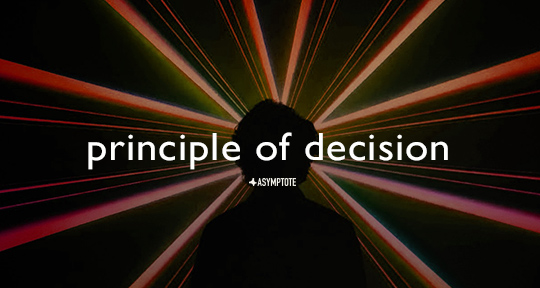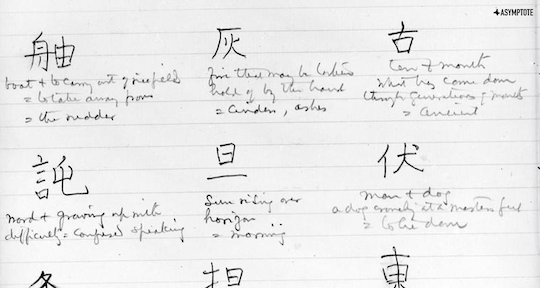The second edition of Principle of Decision—our column that highlights the decision-making processes of translators by asking several contributors to offer their own versions of the same passage—demonstrates translation’s capacity to reveal shades of meaning in the source text. Here, Xiao Yue Shan poses to the translators a passage from Chinese writer 林棹 Lin Zhao.
轻而又轻的一天。时隔多年,那轻而又轻的一天生机犹在。如果你推却一切责任,对他人的痛苦视而不见,去拥抱巨大的明亮、明亮的寂静、寂静的自我,你就能短暂地占有那种轻而又轻。
qīng ér yòu qīng de yī tiān
轻而又轻 的一天。
A light and light day.shí gé duō nián
时隔多年
After many years,nà qīng ér yòu qīng de yī tiān
那轻而又轻的一天
that light and light dayshēng jī yóu zài
生机犹在。
still exists.rú guǒ nǐ tuī què
如果你推却
If you push asideyī qiē zé rèn
一切责任,
all responsibilities,duì tā rén de tòng kǔ
对他人的痛苦
to the pain of othersshì ér bù jiàn
视而不见,
turn a blind eye,qù yōng bào
去拥抱
go to embracejù dà de míng liàng, míng liàng de jì jìng
巨大的明亮、明亮的寂静、
the enormous and bright, bright silence,jì jìng de zì wǒ
寂静的自我,
the self of silencenǐ jiù néng duǎn zàn dì zhān yǒu
你就能短暂地占有
you can also briefly possessnà zhǒng qīng ér yòu qīng
那种轻而又轻。
that kind of light and light.
This passage is taken from the Chinese writer 林棹 Lin Zhao’s debut novel, 流溪 Liu xi, published in 2020. Its narrative takes place throughout Lingnan, a region on China’s southeast coast, weaving through dense urbanities and viridescent ruralities, the subtropical heat and myriad languages, to tell the story of a young woman whose daily life, from its very earliest days, is inextricable from violence, metamorphosis, and fantasy. A tribute to high Nabokovian style, Liu xi is a stunning, inimitable example of what is possible in the Chinese language—the music it pronounces, the visions it conjures, the delicacy and intricacy that can be excavated from its logograms.


